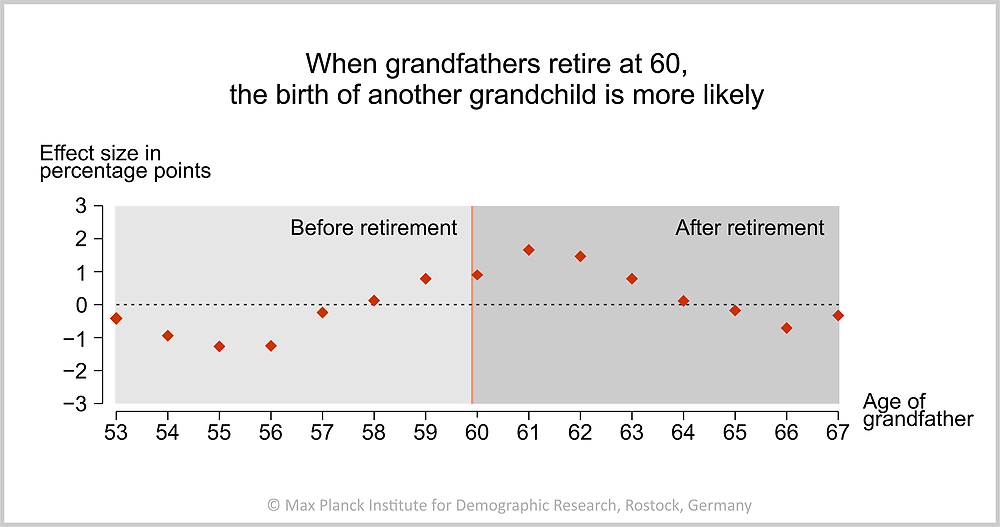February 25, 2020 | Press Release
Fertility in Germany: Retired grandparents help

Grandparents influence their children´s family planning and can look forward to a second grandchild after retirement. © iStockphoto.com/Morsa Images
Parents likely have a second child early, when grandparents retire nearby. However, they do not have more children.
Peter Eibich and a colleague have proved, for the first time, with data from Germany that grandparents have an influence on the family planning of their children. "One year after grandfathers take early retirement, the probability that their children will have a second child increases by 17 percentage points", explains Eibich, deputy head of the research group Labor Demography at the Max Planck Institute for Demographic Research in Rostock.
He evaluated data from the Socio-Economic Panel (SOEP) from 1984 to 2017 and published the results in the journal European Economic Review.
The family planning of the parent generation is influenced to a greater extent by the retirement of grandfathers than grandmothers. Grandmothers often work part-time and spend time with the family before they retire. This is maybe why their retirement has less of an impact.

One year after grandfathers take early retirement, the probability that their children will have a second child increases by 17 percentage points. © MPIDR
Grandmothers look after grandchildren for half an hour per workday on average. When they retire, this time doubles to almost one hour per workday. Grandfathers, on the other hand, do not necessarily spend more time with their grandchildren after their retirement. But they do take on other tasks, especially on weekends. "After grandfathers retire, grandmothers look after their grandchildren up to one hour longer on weekends," says Peter Eibich.
So although grandmothers spend more time with their grandchildren, the retirement of grandfathers in Germany has a greater impact on the probability of parents having a second child than that of grandmothers. Despite the support of grandparents, parents do not decide to have more children.
Original publication
Eibich, P., Siedler, T.: Retirement, Intergenerational Time Transfers, and Fertility. European Economic Review. (2020) DOI: https://doi.org/10.1016/j.euroecorev.2020.103392